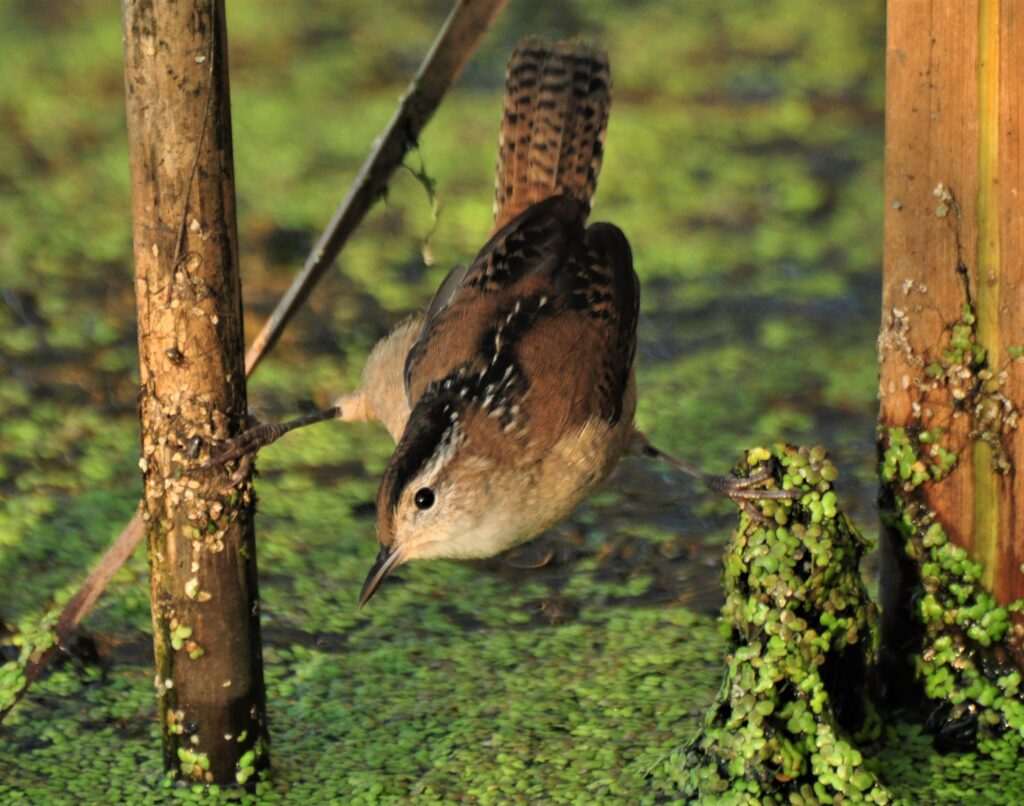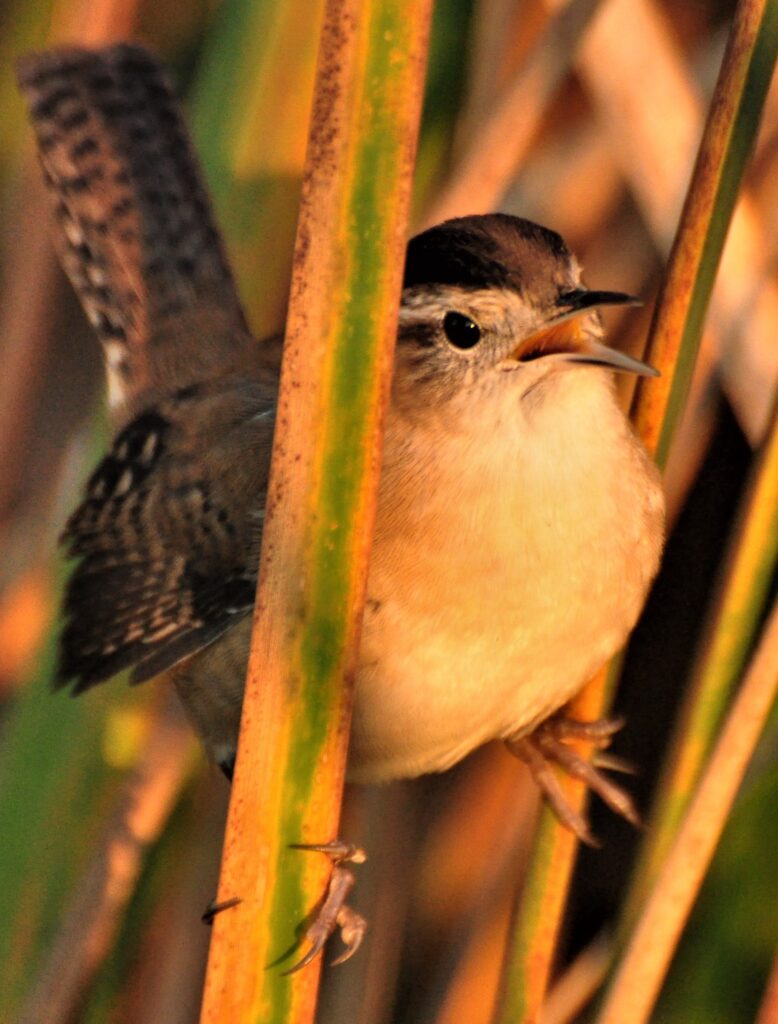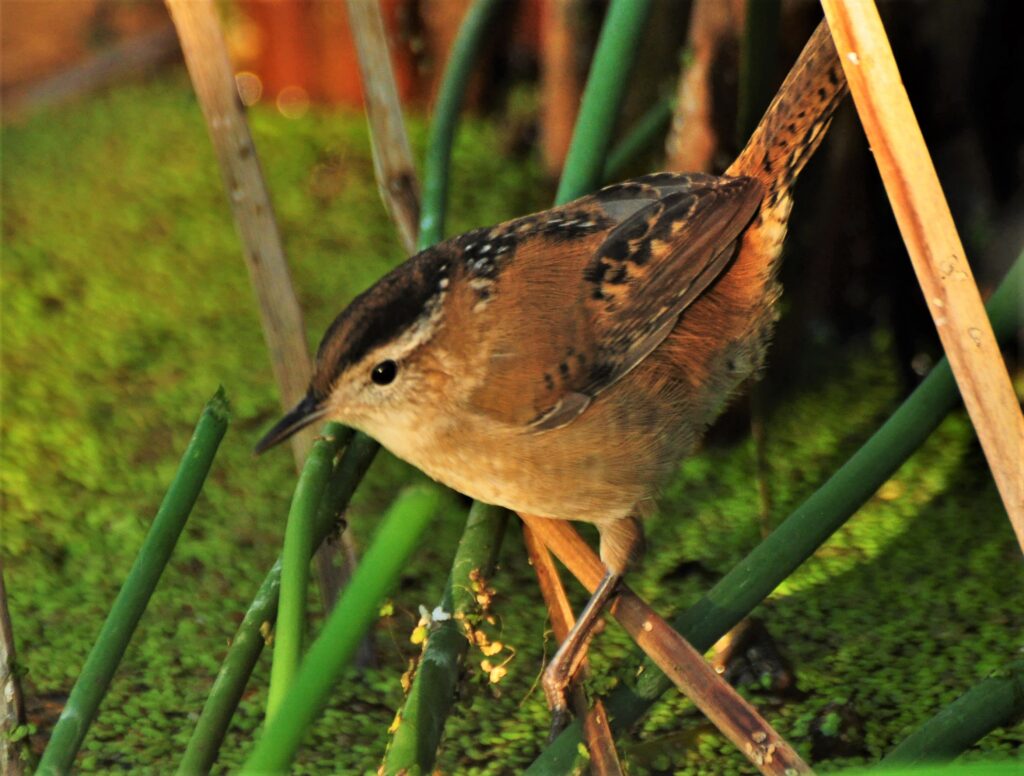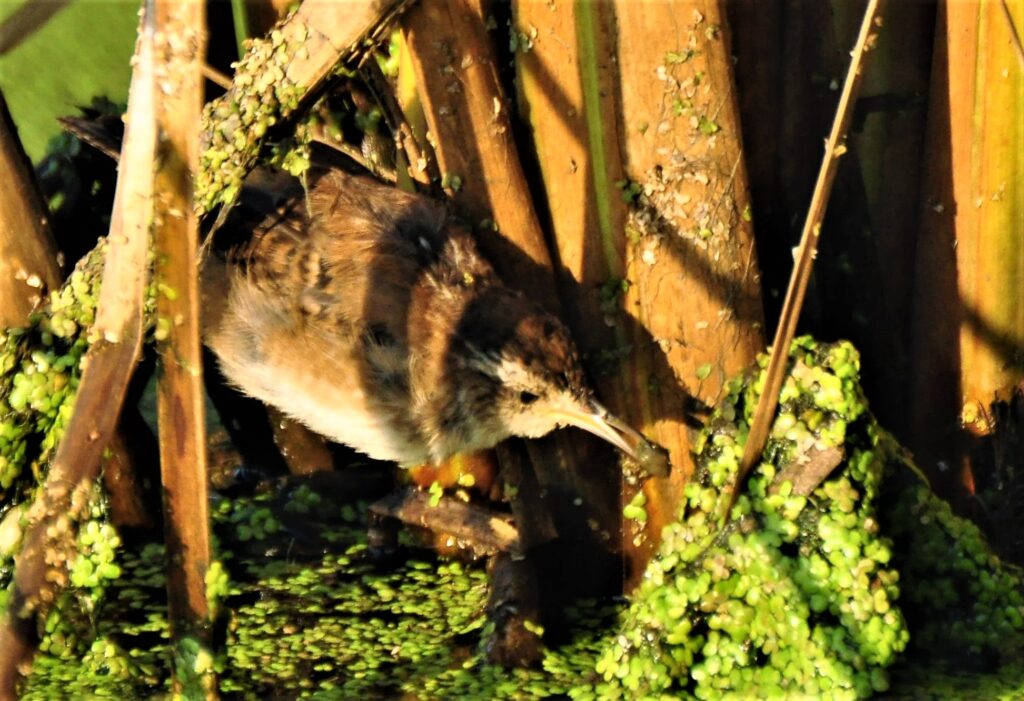Photography courtesy of Lowell Washburn, all rights reserved.
Iowa’s cattail marshlands represent one of our greatest natural treasures. Marshlands aid in flood control, store surface water, and recharge vital underground aquifers. But wetlands are most famous for their wildlife. Marshes provide homes for hundreds of resident and migratory wildlife species ranging from mink to mallards, from dragonflies to egrets.
In spite of all this incredible diversity, it is the birdlife that always seems to steal the show. And when it comes to listing that birdlife, the marsh will never offer a greater variety of species than in early fall. This morning’s teal hunt provided a classic example. Although the blue-wings would prove to be less plentiful than I had hoped for, there were plenty of other bird species to keep me entertained. By the time the night sky had dissolved into the half-light of dawn, I had already encountered a diverse array of feathered wetland inhabitants. The list included wood ducks, mallards, sora rails, yellowthroats and an ear-splitting pair of four-foot-tall sandhill cranes. As daylight increased, the list of observed species quickly soared into the double digits.
Although there were plenty of sights and sounds to choose from, the bird I’ll remember most from my morning outing wasn’t the largest, the loudest, or even the most colorful. It was, in fact, a small cinnamon colored creature known as the marsh wren.

Marsh wrens are the cheeriest birds in the marsh; or at least that’s the way they seem to me. They are always among the first to greet the impending sunrise – and they do so with enthusiastic jubilance. Their varied repertoire is dominated by a high pitched, buzzing trill that is repeated time and again. When combined with the soft rustle of swaying cattails, the vocalizations become an uplifting symphony. Marsh wrens take an energetic approach to life and their enthusiasm is contagious. Big things come in small packages. Even on dark and drizzly mornings, the wren’s sunrise serenades are guaranteed to brighten your day.

In Iowa, marsh wrens are a common wetland inhabitant. But despite their abundance, most people have never seen one. In contrast to the showy red-wings, Canada geese, or trumpeter swans; marsh wrens prefer to remain behind the scenes. Shy and reclusive, they spend their days hidden deep within the confines of the wetland’s heaviest cover. Observing or photographing the species generally requires hard work and patience. The best way to catch a glimpse of the bird is to pull on a pair of chest waders and venture into the oozy, boot sucking mud of the densest stand of cattails you can find. Position yourself near a small opening in the vegetation and dig in.
Although marsh wrens are extremely secretive, they are also highly curious. You usually don’t have to worry about finding them. They will find you. More often than not, these hyperactive little creatures simply can’t resist trying to determine why in the world this new and unusual creature [you] is currently invading their watery domain. As long as you stay quiet and don’t make any sudden moves, an inquisitive wren may approach to within hand shaking distance as it conducts a thorough investigation of exactly who, or what, you are.

Once a wren has determined that you’re harmless, it will often remain nearby while resuming normal activities such as taking a morning bath, hunting for snails, catching water spiders and other wetland invertebrates and, of course, engaging in more energetic singing. If the wren suddenly disappears, it will often return within minutes; this time escorted by a second wren for a feathered version of Show and Tell. Although it’s unlikely that a marsh wren would ever consider a human as its friend; the bird’s cheery demeanor and curious nature can almost fool you into thinking it might.


 Tom Cope
Tom Cope Sue Wilkinson
Sue Wilkinson Susan Judkins Josten
Susan Judkins Josten Rudi Roeslein
Rudi Roeslein Elyssa McFarland
Elyssa McFarland Mark Langgin
Mark Langgin Adam Janke
Adam Janke Joe Henry
Joe Henry Kristin Ashenbrenner
Kristin Ashenbrenner Joe Wilkinson
Joe Wilkinson Dr. Tammy Mildenstein
Dr. Tammy Mildenstein Sean McMahon
Sean McMahon